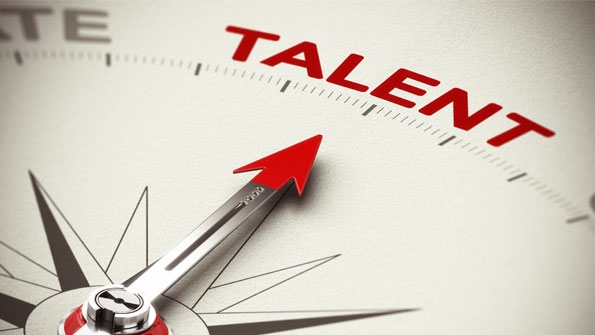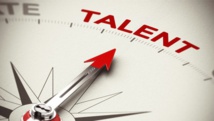- It's a horror - try to predict how people will behave in the future, - grumbles Tom Rauzi, director of Dell talent management.
Automatic talents search algorithms proved themselves far better. Several developers of software for the management personnel claim that they are working on the programs to identify future stars. Only, their performance leaves much to be desired. Giants such as Nokia, American Express and SAP are full-blast experimenting with new technologies, including gaming, to identify useful traits (eg, persistence), and try to divide their employees through a variety of classifications - but they cannot find the key.
Many companies simply rely on the opinion of the immediate superiors or subordinates or try to draw conclusions on the regular personnel assessment. But the chiefs themselves recognize that they can spot a future star only somewhere in half the cases, says Talent Strategy Group’s poll, carried out in 134 companies. This means that half of the $ 70-75 million that American companies spend annually on training, is wasted.
At Dell, some managers, having identified promising employees, give them more opportunities to communicate with superiors or entrust special tasks.
- Somewhere, a result is visible, somewhere expectations are false, - says Rosie. The problem in the fact that Dell has no uniform criteria for what a high-potential employees are.
- Too often, all use this term, but we do not believe that we are talking about the same, - he complains. This summer, the company is launching a study in which analyzes data such as education, career development and peer review in the hope of finding some quality criteria for people applying for a promotion.
If you left the search for future stars to the subjective opinion of superiors, they will promote those who are similar to themselves. CEB’s survey of more than 9,500 managers states: about a quarter rely only on their instincts when choosing a protégé. This may explain why a number of companies find it so difficult to catch people with original ideas.
If a person knows what management believes in his potential, he works longer and harder. Such a conclusion can be drawn from studies by Christopher Collins, professor of human resources management from the school of industrial and labor at Cornell University and director of the Center for Research in the field of HR of the university.
Carrie Davis worked as director of global innovation in Coca-Cola up to March this year. She was surprised to find that people, taken in the program for high-potential employees, are very similar to each other. During training on innovation, she gave some interesting pointers to groups of several people. But then, she realized that the participants of the program spend much more time on the chatter and the struggle for power, rather than the introduction of new solutions. Now Davis, having 13 years at Coca-Cola, has left the company for the sake of opening her own consulting firm. Her concern is that employees, able to generate new creative ideas, are set aside. Press Service of the Coca-Cola declined to comment.
Companies are beginning to use the same tools that for top management to search for talent among the ordinary employees, says vice-president of consulting firm Development Dimensions International (DDI) Matt Paese.
DDI itself this summer will start to promote a new line of tools for human resource management - a lightweight and cheaper version of those traditionally used to evaluate senior managers. The cost of such research in recent years has declined in the company, they say in DDI. Still, market prices remain too high for mass use, the other parry. They note that such detailed studies generate unnecessary anxiety among employees.
Laurie Bradley, manager of talent Phillips-Van Heusen (PVH), which owns the brands Calvin Klein, Kenneth Cole, DKNY, Timberland and so on, says: workers are usually concerned about who looks at their answers and how the view of the man reflected on the payroll or qualifying rating. "We have to put a lot of effort to get the people calm," - she says.
HR software vendors are going to develop their own solutions. They believe that the analysis of a number of indicators (from the employee's contribution to the pension savings plan 401 (k) to involvement in social relations at work) will finally reveal one’s high potential.
Ultimate Software Group, for example, says that its UltiPro High Performer Predictor ranks the employees by the probability of how hard they will work in the coming months. Researcher master data Steve VanWieren, however, said that this figure should not be confused with an employee’s potential. He defines latter as the ability to climb a few steps up the career ladder.
But even if the company manages to create a more or less robust algorithms, they will not be trouble-free, warns VanWieren: "There is always something that is not reflected in the data about the employee."
source: wsj.com
Automatic talents search algorithms proved themselves far better. Several developers of software for the management personnel claim that they are working on the programs to identify future stars. Only, their performance leaves much to be desired. Giants such as Nokia, American Express and SAP are full-blast experimenting with new technologies, including gaming, to identify useful traits (eg, persistence), and try to divide their employees through a variety of classifications - but they cannot find the key.
Many companies simply rely on the opinion of the immediate superiors or subordinates or try to draw conclusions on the regular personnel assessment. But the chiefs themselves recognize that they can spot a future star only somewhere in half the cases, says Talent Strategy Group’s poll, carried out in 134 companies. This means that half of the $ 70-75 million that American companies spend annually on training, is wasted.
At Dell, some managers, having identified promising employees, give them more opportunities to communicate with superiors or entrust special tasks.
- Somewhere, a result is visible, somewhere expectations are false, - says Rosie. The problem in the fact that Dell has no uniform criteria for what a high-potential employees are.
- Too often, all use this term, but we do not believe that we are talking about the same, - he complains. This summer, the company is launching a study in which analyzes data such as education, career development and peer review in the hope of finding some quality criteria for people applying for a promotion.
If you left the search for future stars to the subjective opinion of superiors, they will promote those who are similar to themselves. CEB’s survey of more than 9,500 managers states: about a quarter rely only on their instincts when choosing a protégé. This may explain why a number of companies find it so difficult to catch people with original ideas.
If a person knows what management believes in his potential, he works longer and harder. Such a conclusion can be drawn from studies by Christopher Collins, professor of human resources management from the school of industrial and labor at Cornell University and director of the Center for Research in the field of HR of the university.
Carrie Davis worked as director of global innovation in Coca-Cola up to March this year. She was surprised to find that people, taken in the program for high-potential employees, are very similar to each other. During training on innovation, she gave some interesting pointers to groups of several people. But then, she realized that the participants of the program spend much more time on the chatter and the struggle for power, rather than the introduction of new solutions. Now Davis, having 13 years at Coca-Cola, has left the company for the sake of opening her own consulting firm. Her concern is that employees, able to generate new creative ideas, are set aside. Press Service of the Coca-Cola declined to comment.
Companies are beginning to use the same tools that for top management to search for talent among the ordinary employees, says vice-president of consulting firm Development Dimensions International (DDI) Matt Paese.
DDI itself this summer will start to promote a new line of tools for human resource management - a lightweight and cheaper version of those traditionally used to evaluate senior managers. The cost of such research in recent years has declined in the company, they say in DDI. Still, market prices remain too high for mass use, the other parry. They note that such detailed studies generate unnecessary anxiety among employees.
Laurie Bradley, manager of talent Phillips-Van Heusen (PVH), which owns the brands Calvin Klein, Kenneth Cole, DKNY, Timberland and so on, says: workers are usually concerned about who looks at their answers and how the view of the man reflected on the payroll or qualifying rating. "We have to put a lot of effort to get the people calm," - she says.
HR software vendors are going to develop their own solutions. They believe that the analysis of a number of indicators (from the employee's contribution to the pension savings plan 401 (k) to involvement in social relations at work) will finally reveal one’s high potential.
Ultimate Software Group, for example, says that its UltiPro High Performer Predictor ranks the employees by the probability of how hard they will work in the coming months. Researcher master data Steve VanWieren, however, said that this figure should not be confused with an employee’s potential. He defines latter as the ability to climb a few steps up the career ladder.
But even if the company manages to create a more or less robust algorithms, they will not be trouble-free, warns VanWieren: "There is always something that is not reflected in the data about the employee."
source: wsj.com



















